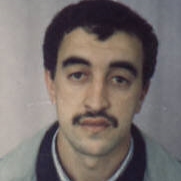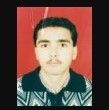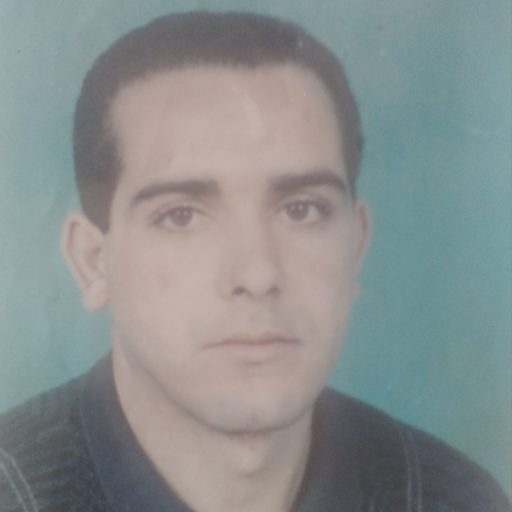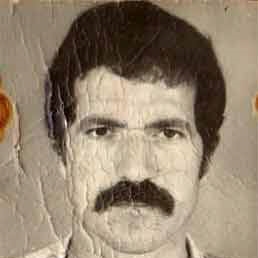
Mohamed Millis
Date of arrest: 1993-09-09
Forces responsible: Police
Summary
During the civil war, Mohamed Millis’ father was manager of a café in the centre of Birkhadem municipality, Algiers wilaya. He claims that, at that time, police officers from the town police station would burst into the café twice a week, order the doors closed and search everyone present, saying that they were looking for terrorists.
On September 9, 1993, at around 2 p.m., Mohamed Millis’ father was with his son when two armed and uniformed police officers, A.G. (now retired) and A.B. (now deceased), ordered Mohamed Millis to show them his identity documents. The police officers then ordered him to follow them, without giving any explanation or showing an arrest warrant. They took him away in an official vehicle to the Birkhadem police station. There were two witnesses to the events, who, for fear of reprisals, only dared to report what they had witnessed to Birkhadem town hall in 2000.
Following the arrest of his son, Mohamed Millis’ father followed the police car and witnessed the police grab his son and go into the police station. He tried to follow them in to find out what was happening but he was prevented from going inside the station. Mohamed Millis’ father has not had any news from his son since then, despite his efforts to find out about is fate and whereabouts.
Steps taken
After September 9, 1993: Mohamed Millis’ brother and a friend go to the Birkhadem police station, where they are told that there is no mention of Mohamed Millis in the registers.
Mohamed Millis’ father goes to the same police station, accompanied by two witnesses, and is told to come back with a family civil-status book.
May 28, 1998: His father sends a complaint to the Public Prosecutor at the Court of Algiers and the Public Prosecutor at the Court of Bir Mourad Raïs. He also petitions the President of the Republic and the Minister of Justice. His father also petitions the Chair of the National Human Rights Observatory and the Ombudsman, who responds on June 22, 1998.
December 31, 1999: The National Advisory Commission for the Promotion and Protection of Human Rights informs Mohamed Millis’ father that his son is neither sought nor arrested by the national security services. The investigation is carried out by the gendarmerie.
June 21, 2000: His father petitions the president of the National Human Rights Observatory after the Observatory informs him that it has found no trace of Mohamed Millis at the Birkhadem police station.
October 20, 2011: His father writes to the President of the Republic, the Minister of Justice, the Minister of the Interior, local authorities and the President of the National Advisory Commission for the Promotion and Protection of Human Rights, to no avail.
February 18, 2006: His father writes again to the Public Prosecutor at the Court of Bir Mourad Raïs. Having not received no response, he sends further complaints to the Public Prosecutor at the Court of Bir Mourad Raïs on August 9, 2006 and July 27, 2007.
February 11, 2006: His father writes to the Minister of Justice, the President of the Republic, the Minister of the Interior, local authorities, the Head of Government and the President of the National Human Rights Observatory, to no avail.
August 9, 2006: His father writes a letter to the commander of the Birkhadem regional gendarmerie division and the Human Rights Advisor to the President of the Republic.
July 27, 2007: His father contacts the Minister of Justice, the Head of Government, Kamel Rezzak Bara, the commander of the Birkhadem regional gendarmerie division, the President of the Republic, the Minister of the Interior and local authorities.
February 27 and July 6, 2008: His father is summoned by the Birkhadem criminal police division to “assist with inquiries”.
July 23, 2008: His father is instructed to follow the procedure for compensation provided for in the 2005 Charter for Peace and National Reconciliation. As compensation is conditional on obtaining a declaration of death, Mohamed Millis’ father refuses.
August 6, 2008 and October 20, 2011: His father files new complaints with the Public Prosecutor at the Court of Bir Mourad Raïs, to no avail.
August 6, 2008: His father writes again to the Minister of Justice.
February 8, 2009: The wali at Bir Mourad Raïs daira invites him to carry out the procedures provided for in the Charter for Peace and National Reconciliation.
March 10, 2014: Having exhausted all domestic remedies, Mohamed Millis’ father seizes the UN Human Rights Committee.
Decision of the Human Rights Committee
Right to an effective remedy (including in relation to the author); cruel, inhuman or degrading treatment or punishment (including in relation to the author); liberty and security of the person; human dignity; recognition as a person before the law; freedom of assembly.
The State party must provide the author with an effective remedy. This provision requires that States parties make full reparation to individuals whose Covenant rights have been violated. In the present case, the State party is obliged, inter alia, to: (a) conduct an in-depth, thorough and impartial investigation into the disappearance of Mohamed Millis and provide the author with detailed information about the results of its investigation; (b) release Mohamed Millis immediately if he is still being held incommunicado; (c) in the event that Mohamed Millis is deceased, hand over his remains to his family; (d) prosecute, try and punish those responsible for the violations committed; (e) provide adequate compensation to the author for the violations perpetrated against him, and to Mohamed Millis, if he is alive; and (f) provide appropriate satisfaction for the author and his family. Notwithstanding the terms of Ordinance No. 06-01 on the implementation of the Charter for Peace and National Reconciliation, the State party should ensure that it does not impede enjoyment of the right to an effective remedy for crimes such as torture, extrajudicial killings and enforced disappearances. It is also under an obligation to take steps to prevent similar violations in the future. To that end, the Committee is of the view that the State party should review its legislation in mind of its obligation under article 2 (2) of the Covenant and, in particular, repeal the provisions of the aforementioned Ordinance that are incompatible with the Covenant, to ensure that the rights enshrined in the Covenant can be enjoyed fully in the State party.




